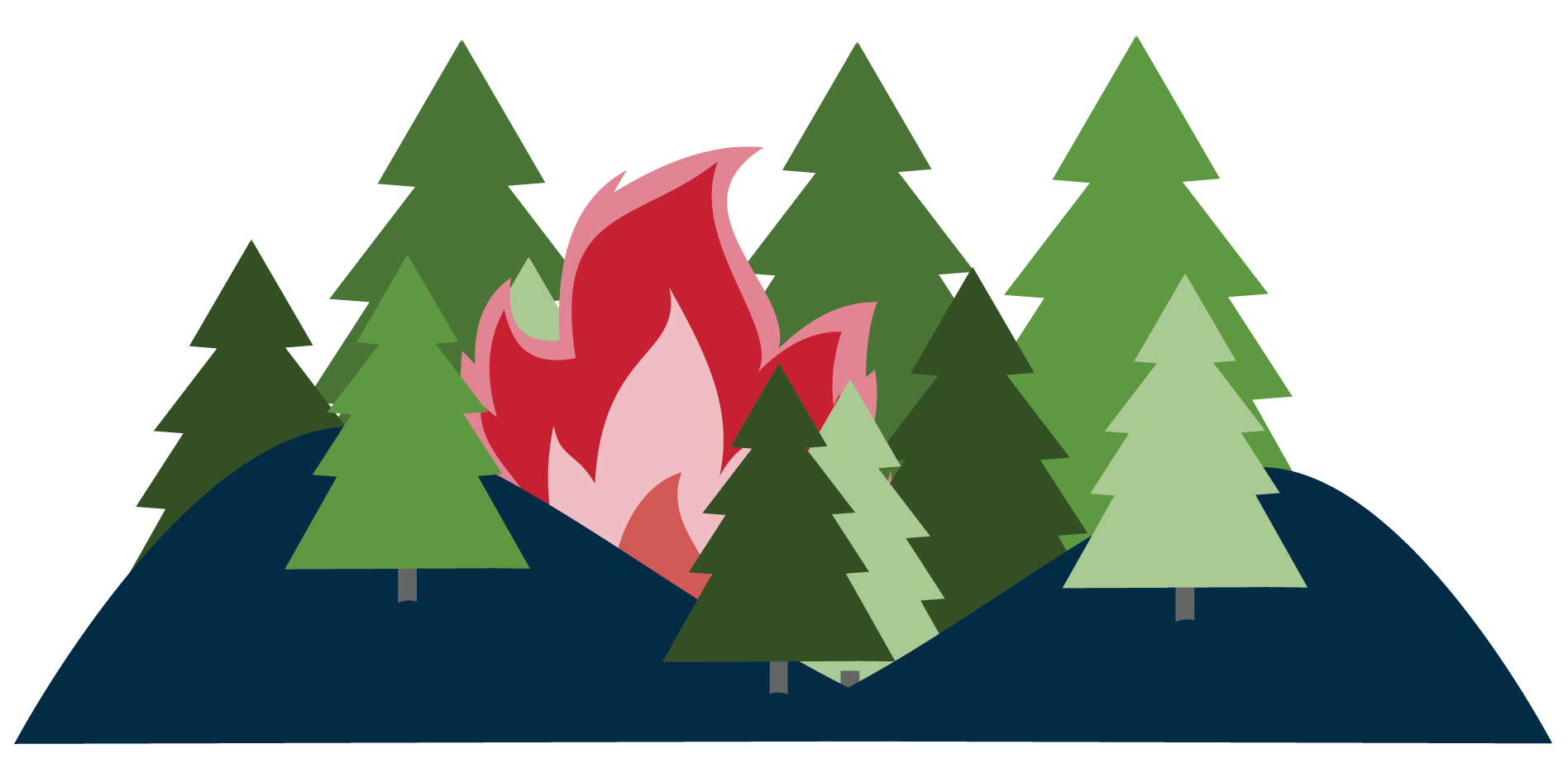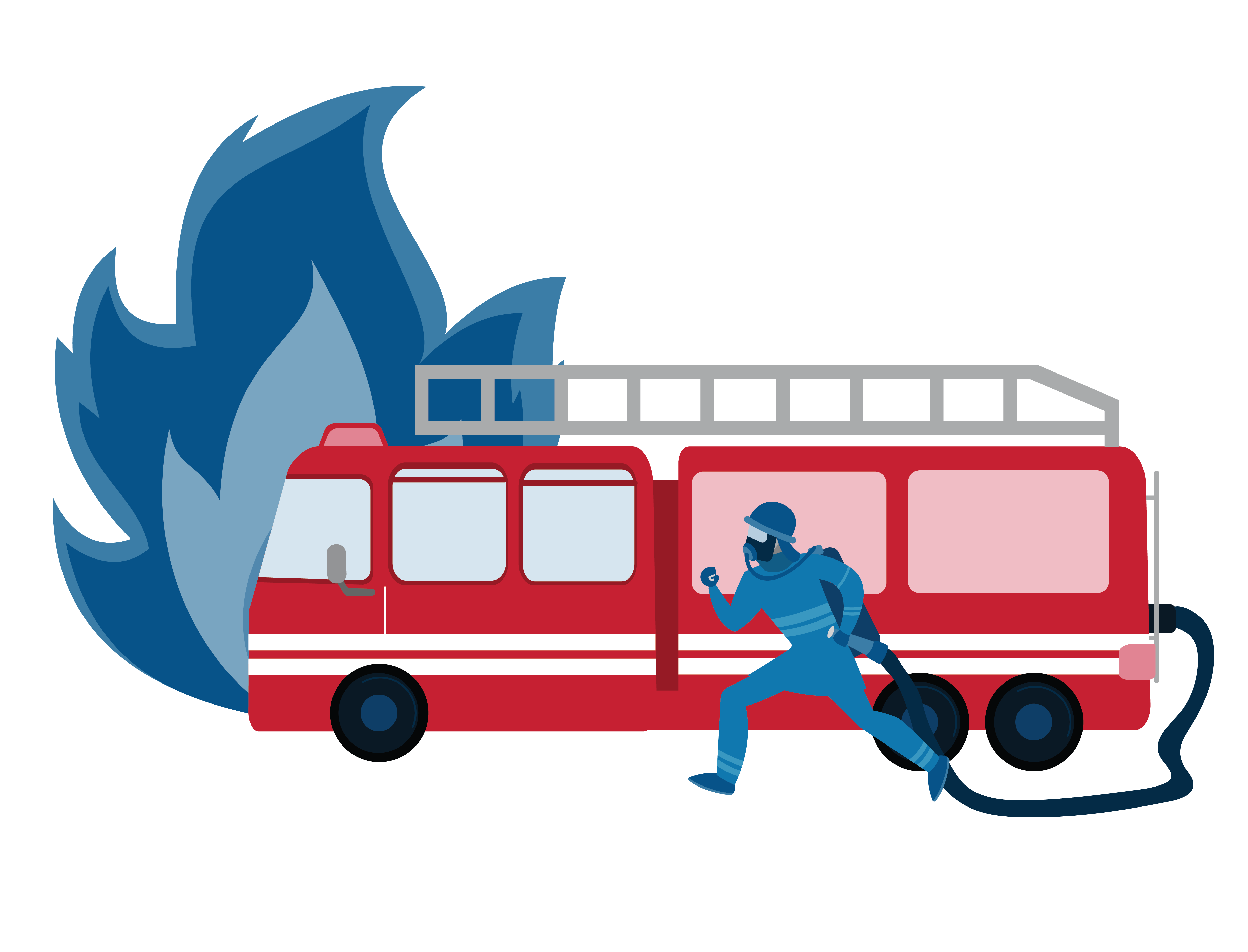Grants
Tribal Nations
Resources
Prepare for Wildfires
Wildfire prevention and management is a multi-agency effort. FEMA coordinates across federal agencies to help state, local, tribal, and territorial partners respond to wildfires nationwide.
Through FEMA, fire management assistance is available to state, local, tribal and territorial governments. This assistance helps with mitigation, management, and control of fires.
Federal support includes personnel, assets, technical assistance, and financial investments to help communities mitigate and respond to wildfires. Other federal agencies also work year-round to help prevent and defend against wildfires. We remain committed to delivering better services to marginalized and other vulnerable populations.
Grants
Mitigation Opportunities
With the growing climate change crisis facing the nation, FEMA’s Hazard Mitigation Grant Program (HMGP) and Building Resilient Infrastructure and Communities (BRIC) program provides funding to help states, tribes and territories invest in measures that reduce disaster suffering and create safer and more resilient communities.
Learn more about what hazard mitigation is and how FEMA grants can help.
Fire Management Assistance Grants
Learn more about how FEMA provides federal support through the FMAG Program.
An FMAG authorization also makes funding available to eligible states and territories through the Hazard Mitigation Grant Program (HMGP) Post Fire program, which can help mitigate wildfire and related hazards by funding eligible wildfire project types like defensible space measures, ignition-resistant construction, and hazardous fuels reduction.
Active Fire Management Assistance Declarations
Assistance Options for Tribal Nations
Tribal Nations with eligible costs can access Fire Management Assistance funding from FEMA through one of three ways:
- The Tribal Nation Requests a Disaster Declaration from FEMA: Tribal Nations cannot request their own FMAG directly from FEMA. However, Tribal Nations can request their own emergency disaster declaration or major disaster declaration directly from FEMA to help manage and control fires.
- The Tribal Nation becomes a direct recipient through an existing state FMAG: A Tribal Nation whose lands or property are included in a state FMAG request, can use a state’s FMAG number to work directly with FEMA to manage the assistance. The state will not be involved in management of the FMAG on the Tribal Nation’s behalf. The Tribal Nation may coordinate with their FEMA Tribal Liaison to discuss their options under a FMAG or tribal disaster declaration.
- The Tribal Nation becomes a subrecipient under an existing state FMAG: Tribal Nations can work with their state’s emergency management offices to be included in the state’s FMAG request and become a subrecipient of the state.
For more information about Tribal Disaster Declarations, Visit FEMA’s Tribal Disaster Declaration Webpage and the FEMA Tribal Affairs Hub. For more information on FMAG, visit FEMA’s Fire Management Assistance Grants Program & Policy Guide.
Resources
Find specific information on resources for states with active wildfires below.
Federal Resources
The National Interagency Fire Center (@FSNIFC) is the nation’s support center for wildland firefighting.
The U.S. Department of Interior (@Interior) pays for people and equipment needed to control wildfires through the Office of Wildland Fire suppression program and also does prescribed burns to more than 350,000 acres annually on service lands through the U.S. Fish and Wildlife Service (@USFWS) fire management program.
The U.S. Fire Administration's Wildfire and the Wildland Urban Interface offers training materials, mitigation grant information and technology resources.
The U.S. Department of Agriculture Forest Service firefighters (@forestservice) respond to a significant number of wildfires each year.
The U.S. Fire Administration National Fire Academy (@USfire) offers free training and educational programs to support career and volunteer fire departments and emergency service organizations in preparing for, preventing and responding to fires and other hazards.
Social Media and Additional Resources
X
Other Federal Partners
Non-Federal Partners
Prepare for Wildfires
You can do several things before wildfires affect your home and community.
Find more information on wildfire safety and prevention on the Ready.gov Wildfires page.

- Have several ways to receive alerts. Download the FEMA app and receive real-time alerts from the National Weather Service for up to five locations nationwide.
- Make an emergency plan. Learn your evacuation routes, practice with household, pets, and identify where you will go.
- Review important documents. Make sure your insurance policies and personal documents like ID are up to date.
- Strengthen your home. Use fire resistant materials to build, renovate or make repairs. Create a fire-resistant zone that is free of leaves, debris or flammable materials for at least 30 feet away from your home if possible.



